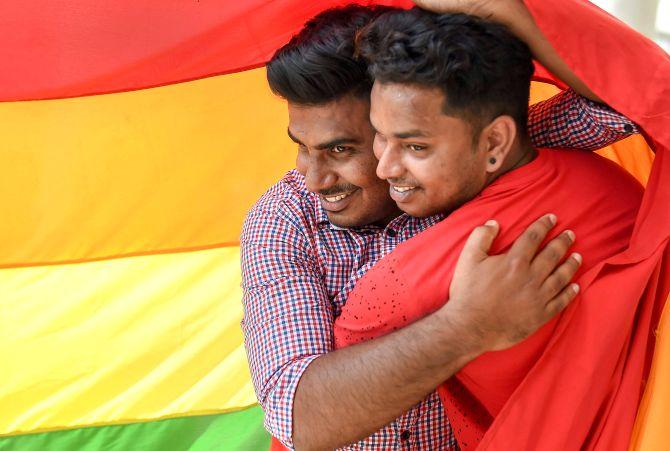A same sex couple has moved the Delhi high court seeking they be allowed to get married under the Special Marriage Act, saying they have been living together as a couple for eight years, in love with each other sharing the highs and lows of life, but unable marry as they are both women.

A similar plea has been moved by two men, who got married in the United States, but their marriage was not registered under the Foreign Marriage Act of 1969 by the Indian consulate as they were a same sex couple.
Both the petitions came up for hearing before Justice Navin Chawla who directed the registry to list them before the bench of the chief justice of the high court which is already hearing a PIL seeking a declaration that same sex marriages be recognised under the Hindu Marriage Act (HMA) and Special Marriage Act (SMA).
The petitioners are being represented by senior advocate Menaka Guruswamy and advocates Arundhati Katju, Govind Manoharan and Surabhi Dhar.
The two women, aged 47 years and 36 years, have said that simple things -- like opening a joint bank account, buying family health insurance, or securing address proof -- which a married couple takes for granted are a struggle for them.
"Marriage is not just a relationship between two individuals, it brings two families together. But it is also a bundle of rights. Without marriage, the petitioners are strangers in law. Article 21 of the Constitution of India protects the right to marry a person of one's choice and this right applies with full force to same-sex couples, just as it does to opposite-sex couples," they have contended in their plea.
The women are part of the team that built north India's leading clinic specialising in mental health and learning disabilities for children and young adults.
They have sought that the SMA be declared as unconstitutional to the extent that it does not allow solemnisation of marriage between same sex couples.
They have also urged the court to declare that the SMA ought to apply to all couples regardless of their gender identity and sexual orientation and also issue a direction to the sub-divisional magistrate Kalkaji, who is also the marriage officer of the South East District of Delhi, to register their marriage under the Act.
The two men, in their plea, have contended that Indian consulate at New York refused their application for registration on the ground of their sexual orientation alone.
"The Indian consulate would have registered the marriage of any similarly placed opposite sex couple," they have contended.
The couple, who were in a relationship since 2012 and got married in 2017, have also claimed that during the Covid-19 pandemic, non-recognition of their marriage by the laws here continues to disentitle them to travel as a married couple to India and spend time with their families.
They have contended that the consulate's decision has violated their rights under Articles 14, 15, 19 and 21 which the Supreme Court, in Navtej Singh Johar case, had held was guaranteed to LGBT and non-LGBT Indians with equal force.
"Further, the Foreign Marriage Act (FMA) ought to be read to apply to same-sex marriages and is unconstitutional to the extent it does not do so," their petition has said.
They have also said that "nonrecognition of same-sex marriages is a wanton act of discrimination that strikes at the root of dignity and self-fulfilment of lesbian, gay, bisexual, transgender and queer (LGBTQ) couples".











 © 2025
© 2025